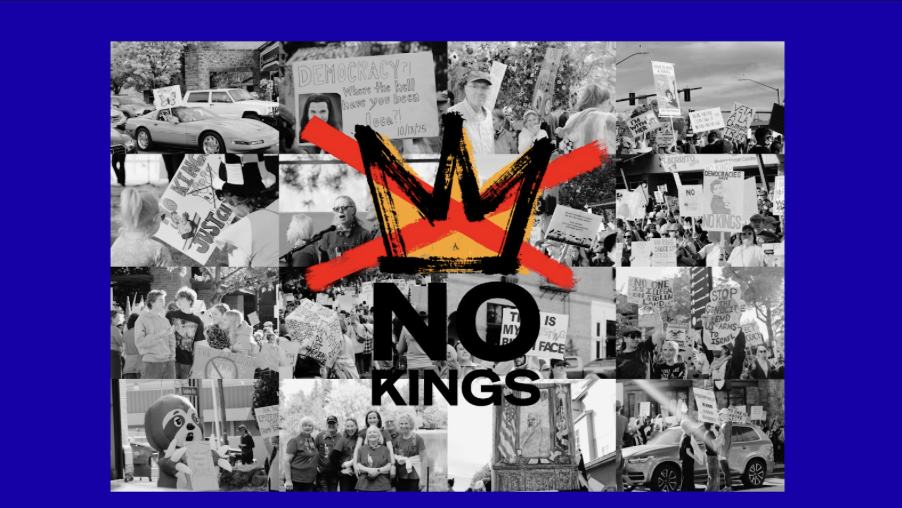Spring cleaning has arrived. While searching through the deepest parts of your closet, you stumble upon that 50-percent-off sweater that you begged your mom to buy. With tags and all still intact, you throw it in the pile labeled DONATIONS.
The sweater, meant as a holiday gift, is simply a symbol of materialism. Following a day full of gratitude, Black Friday is the epitome of consumerism, luring people into the spirited stress of the season.
“On Thanksgiving, we’re spending time being thankful for everything and then the next day, it’s promoting just going in buying stuff,” said Summit senior Julia Kaisner. “Probably stuff you don’t need just because there’s like a deal.”
Black Friday has redirected the intended values of the holidays from spending quality time with loved ones to spending money on them. Most human values have become influenced by materialism, how much you have and what you wear.
“We try to keep it simple and buy high-quality things we know our loved ones need,” said Summit art teacher Jessie Dale.
The commercial holiday is the initiator of a vicious cycle of consumerism. After spending all the money they have at the sale, shoppers with more than what’s needed, and many Black Friday “steals” end up being wasted and disregarded. Such “steals” cause the sum to exceed the original price.
According to an article on PHYS.org, after a short life, up to 80 percent of items bought at Black Friday sales are incinerated or end up in landfills. However, even with the downfalls of the sales, because of the huge consumerism culture in the U.S. Black Friday can be an important day for businesses.
“A lot of businesses make the majority of their yearly earnings in just a couple-month span,” said Amanda Holdredge, the Summit Literature and Composition teacher.
But even with the few positive impacts Black Friday can have, the day is just a reminder of a society that is built on overconsumption.
Often stores that participate in Black Friday are big chain stores such as Fred Meyers, Bath and Body Works, Walmart, Best Buy and Macy’s. Those stores already have significant shopper traffic and offer bargains throughout the year. Stores on Black Friday tend to take advantage of shoppers.
“Sometimes stores just raise their prices and then say that it’s a sale, which seems like a way to get shoppers excited about shopping and think that they’re saving a lot of money,” said Moseley Maxwell, a Summit freshman. “It’s definitely a big consumerism thing, though.” And she isn’t wrong. According to an article in The Wall Street Journal, shoppers on Black Friday partake in “retail theater,” this means that businesses mark up the prices of goods to then bring the prices down. In terms of the big sale, designing the product “with the discount built in” brings in the profit businesses want.
On the day, people often see a sale of 40 or 50 percent off and just assume it is a great deal, leading them to buy an excess amount of products they wouldn’t normally buy and don’t need feeding into the theatrics of big businesses.
“Consumerism feels pretty exhausting to me,” said Dale. “We try to give our stuff a second life and buy secondhand when we can to reduce consumption.”
Now, a new sale has emerged. This year, while out shopping people may have noticed the Saturday after Black Friday referred to as “Small Business Saturday.” This idea gives local shops a chance to have their sales on a day that isn’t all about chain store consumerism.
In Bend alone, multiple small businesses participate, including The Workhouse and Gathered Wares, allowing people to support shops at a lesser price. Local business participation provides relief from the monotonous trap of useless garbage that modern culture constantly advertises. Even if shoppers are lured into “retail theater,” at least the resulting profits will return to the community as culture support. Still, consumerism is consumerism, even mindful consumption.
“Just because it was so cheap, it seemed like such a good deal,” said Kaisner. “But then it’s kind of something you only wear for a little bit and then throw away.”
If out shopping for Black Friday or any sale for that matter, it is important to recognize the possible baiting big businesses take advantage of. Consider if the product is worth the price or if it too will be thrown away come spring. In this day and age, keeping sustainability in mind prevents excess waste, even when considering that one gift for a distant cousin. More than often it is the thought that counts, and a heartwarming card can always be recycled.






































